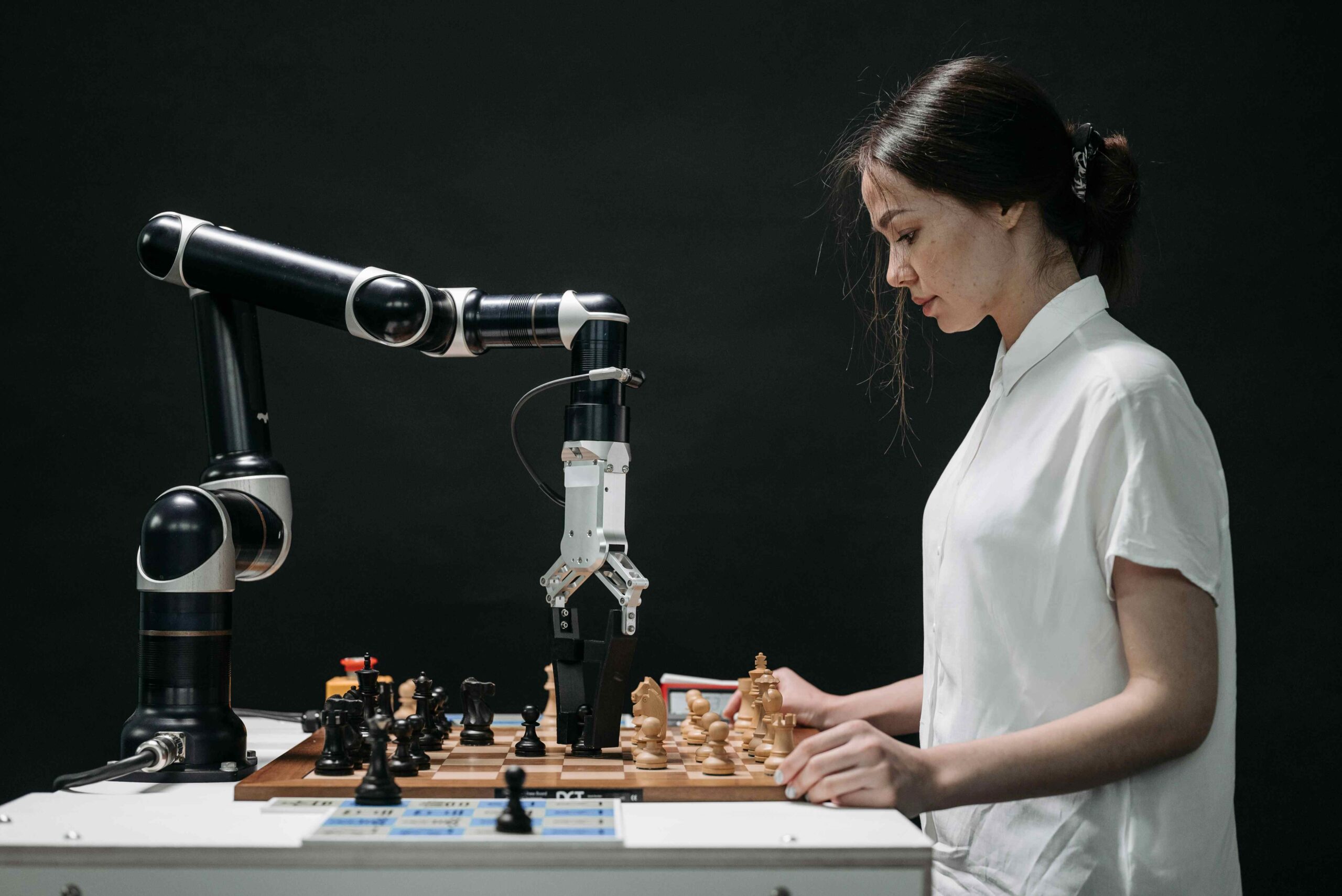
When Machines Think: Are We Still the Smartest Species?
Article Level: B1-B2
Explanation: This article explores the growing intelligence of machines and AI, comparing it with human abilities. While AI can process data faster and perform complex tasks, humans remain unique in emotions, creativity, and moral judgement.
Commonly Used Words from the Article
-
Artificial /ˌɑːtɪˈfɪʃəl/ (adjective): Made by humans, not natural.
Robots use artificial intelligence to learn. -
Intelligence /ɪnˈtɛlɪdʒəns/ (noun): The ability to think and understand.
Humans show intelligence in many creative ways. -
Efficiency /ɪˈfɪʃənsi/ (noun): The ability to do something well without wasting time or energy.
Machines have high efficiency in data analysis. -
Ethical /ˈɛθɪkəl/ (adjective): Relating to moral principles.
Humans make ethical decisions based on values. -
Unique /juːˈniːk/ (adjective): Being the only one of its kind.
Each human mind is unique.
Audio File of the Article
Read more: When Machines Think: Are We Still the Smartest Species?

When Machines Think: Are We Still the Smartest Species?
In the past few decades, technology has developed faster than ever. Computers, smartphones, and robots are becoming smarter. They can learn, make decisions, and even create art. This raises an important question: are humans still the smartest species on Earth?
Machines, especially those with artificial intelligence (AI), can process information much faster than humans. For example, AI can analyse huge amounts of data in seconds, something a human brain would take years to do. Machines do not get tired, and they do not make emotional mistakes. This makes them very efficient for many tasks, such as medical research, financial predictions, and even driving cars.
However, humans are still unique in many ways. We have emotions, creativity, and the ability to understand the world in complex ways. Machines can follow rules and patterns, but they do not feel happiness, sadness, or curiosity. They cannot fully understand art, music, or human relationships. These qualities are still exclusive to humans and are a sign of true intelligence.
Another point to consider is learning. Humans can learn from experience, adapt to new situations, and make ethical decisions. AI can also learn, but it needs large amounts of data and human programming to improve. It cannot yet understand the meaning behind its actions or decide what is morally right or wrong without instructions.
Despite these differences, the line between human and machine intelligence is becoming less clear. AI can now write articles, paint pictures, and compose music. Some machines can even beat humans in complex games like chess or Go. This progress is impressive, but it also challenges our view of what it means to be intelligent.
Many experts believe that AI will continue to improve, and in some areas, it may surpass human abilities. Yet, intelligence is not only about speed or accuracy. It also involves emotions, creativity, empathy, and moral judgement. For now, humans remain the only species capable of these qualities.
In conclusion, while machines are becoming smarter, humans are still unique in their emotional and creative abilities. AI can help us solve problems and make life easier, but it cannot replace the full depth of human intelligence. The future may see machines becoming more intelligent than humans in some tasks, but the smartest species on Earth still appears to be us — for now.

Grammar Notes
-
-
-
Present Simple: Used to describe facts and general truths.
-
Example: “Humans are still unique in many ways.”
-
-
Present Continuous: Used to describe ongoing actions.
-
Example: “Computers, smartphones, and robots are becoming smarter.”
-
-
Modal Verbs (can, may, cannot): Used to show ability, possibility, or limitation.
-
Example: “Machines can follow rules and patterns, but they do not feel happiness.”
-
-
Comparatives: Used to compare humans and machines.
-
Example: “Machines can process information much faster than humans.”
-
Mini Grammar Lesson:
Use present simple for facts (e.g., “AI helps humans”) and present continuous for actions happening now (e.g., “AI is
improving quickly”). Modal verbs like can show ability, and comparatives like faster than help compare two things. -
-
Join Our FREE English Grammar Course and improve your grammar skills!

Five Questions Based on the Article
-
-
-
What are some tasks that machines can do faster than humans?
-
Why are humans still considered unique compared to machines?
-
How does AI learn, and how is it different from human learning?
-
Can machines feel emotions like humans? Why or why not?
-
What is the main idea of the article?
-
-
Join Our FREE Weekly English-speaking Class and improve your speaking skills!

We’d love to hear your thoughts! Join the conversation by leaving a comment below. Sharing your insights, questions, or experiences can help you connect with others in our English learning community. It’s a great way to practice your English skills, engage with like-minded individuals, and improve together. Don’t be shy—jump in and let’s keep the discussion going!

 EnglishMasteryHub
EnglishMasteryHub